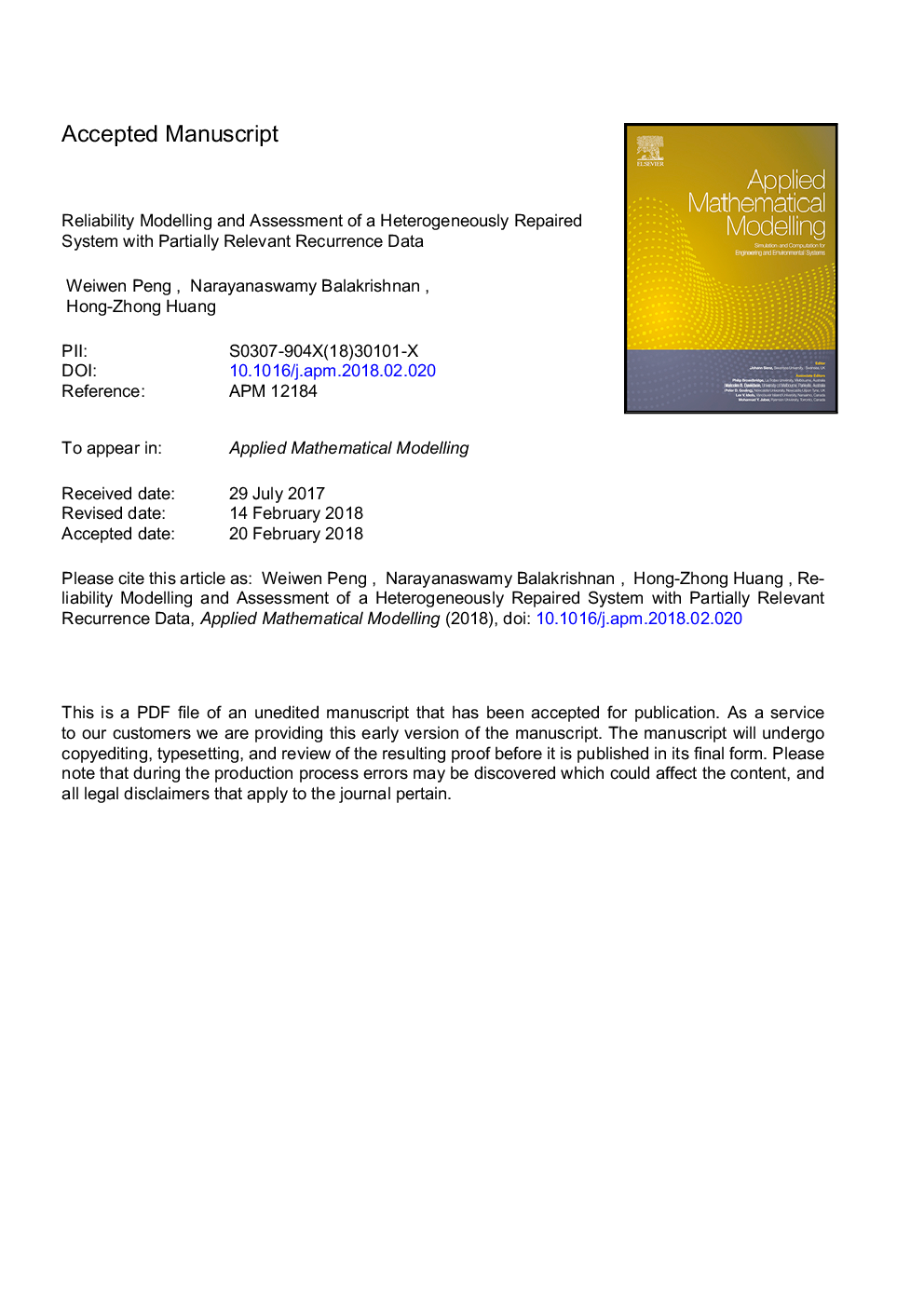| Article ID | Journal | Published Year | Pages | File Type |
|---|---|---|---|---|
| 8051670 | Applied Mathematical Modelling | 2018 | 36 Pages |
Abstract
In this paper, statistical modelling of recurrent failures and reliability assessment of repairable systems are investigated. The study is aimed to fill a gap in classical failure data analysis, where the systems are heterogeneously repaired and the recurrent failures are caused by inherent characteristics, or unwanted factors, or both. A model is firstly introduced to model arrival times of failures by using general intensity function of a point process. A virtual age model is then incorporated to characterize the recurrent failures with both perfect maintenance and imperfect maintenance. This model is further enhanced by a failure-relevance factor and an exponentially modified likelihood, which is used to model the failures attributed to both inherent characteristics and unwanted factors. For the parameter estimation, a recursive Bayesian estimator is introduced by taking the idea of sequential importance sampling. Arrival times of recurrent failures are progressively fed into the Bayesian estimator, and the parameter estimation is gradually updated with the progressive arrival of recurrent failures. A simulation based method is developed for the reliability assessment, which is implemented based on posterior samples of model parameters from the sequential importance sampling. Finally, the proposed method is demonstrated through field data analysis of a repairable system, which is originated from a practical engineering project. Comparisons of the proposed method with classical methods are also made in the case study to demonstrate the advantages of the proposed model.
Related Topics
Physical Sciences and Engineering
Engineering
Computational Mechanics
Authors
Peng Weiwen, Narayanaswamy Balakrishnan, Huang Hong-Zhong,
